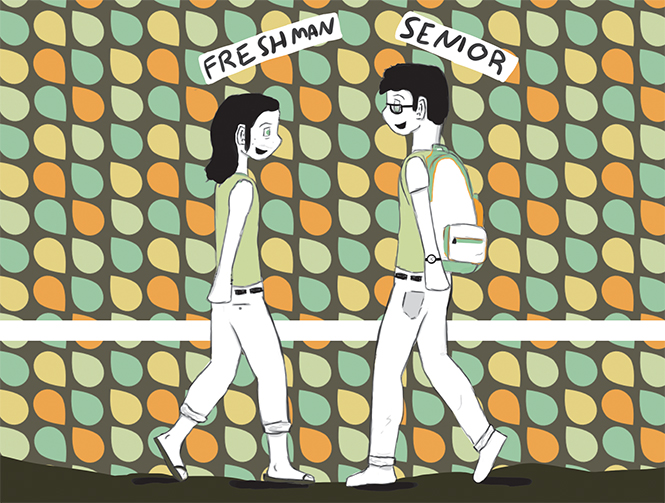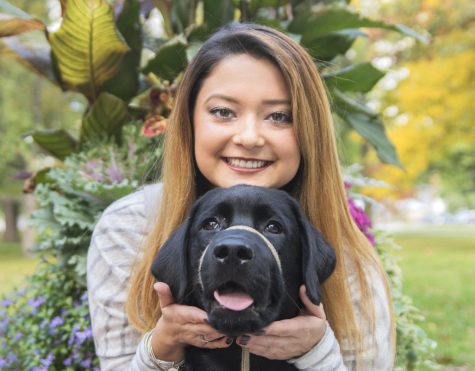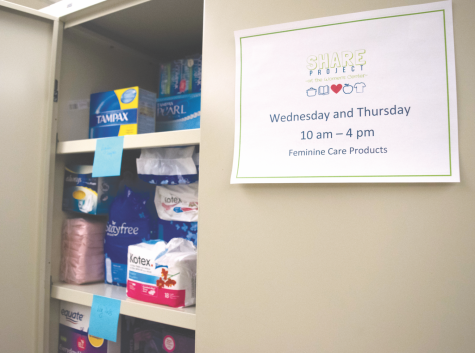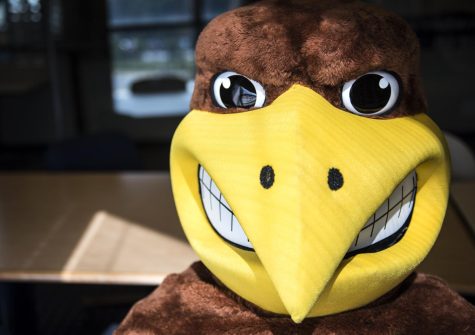Higher education presents academic, social challenges
April 30, 2014
When freshman visual communication design major Michaela Anderson came into college, the heavy workload came as a surprise to her.
“In high school, I was used to staying up really late,” Anderson said. “Here, it was completely different. There was twice as much work as I was used to.”
A heavier workload is just one of many things that sneak up on incoming freshmen as they make the transition from high school to college.
According to Joan Inderhees, a first year experience instructor for the School of Visual Communication Design, many of those academic issues can be solved by simply learning to manage your time.
“Time management has been one of the big things [students] confront. In studio classes, there is a regular pace of bringing in work to be critiqued, and for a lot of people, this is the first time they have done this. That learning curve is a big thing,” Inderhees said.
“I feel overwhelmed sometimes,” sophomore fashion design major Paula Caleb said. “I want to get a handle on [the workload] now before I have more to do. I talk with seniors in the fashion design program and I’ve learned it’s hard, and you have to develop those skills now.”
Sometimes the type of workload can be a surprise.
“In high school, you’re accustomed to busy work,” freshman communication studies major Shantelle Rogers said. “Here, you have to read a chapter, and it can be 30 or more pages.”
Rogers felt more prepared for college due to taking a gap year. While working at home, she realized that she had come to miss school and being around people her age. For her, it made the academic side of things a little easier.
Academics don’t pose the only challenges for incoming freshmen. The social aspect of college is oftentimes something they feel unprepared for as well.
“I grew up knowing everyone by name,” said Clair Yee, a sophomore public health major. “Here, I only knew one person. Going from knowing everyone to knowing no one was a hard transition.”
Yee didn’t begin to make strong friendships until her second semester at Kent, when she joined Phi Delta Epsilon and student organizations.
“I thought I was just going to make friends with people in class. You don’t really realize that you have friends in your classes and friends outside of class,” Yee said.
New surroundings can be intimidating, but the best way to ease into college life is by getting to know your surroundings.
“Talk to people. Talk to everybody. Talk to people in your major, upperclassmen, people not in your major and professors,” Caleb said. “It will help you realize you are not alone and that there are people struggling just like you are. Someone might also be able to lend a helping hand and give you advice.”
“It’s a little intimidating and out of your comfort zone,” she said, “but it works.”
Contact Blythe Alspaugh at [email protected].
























